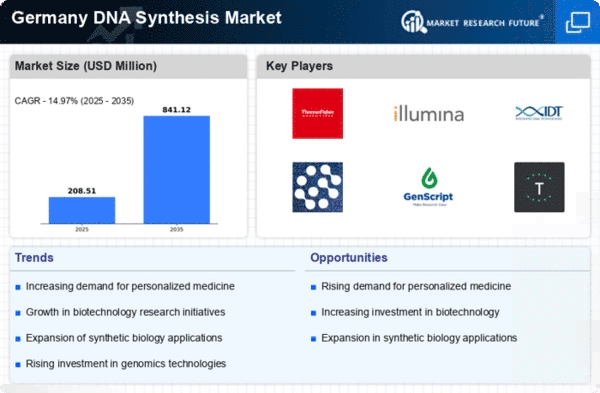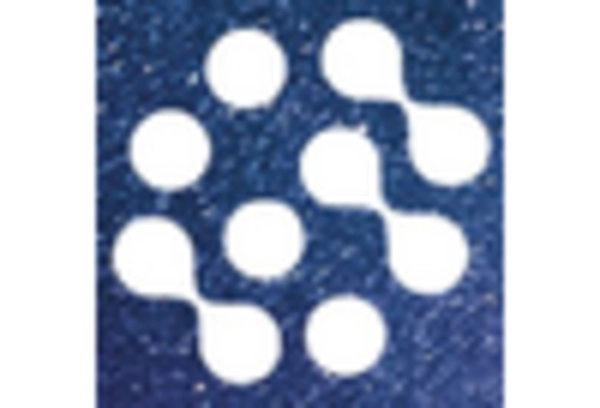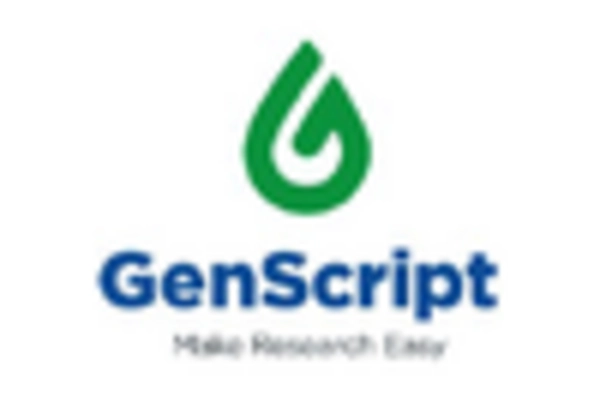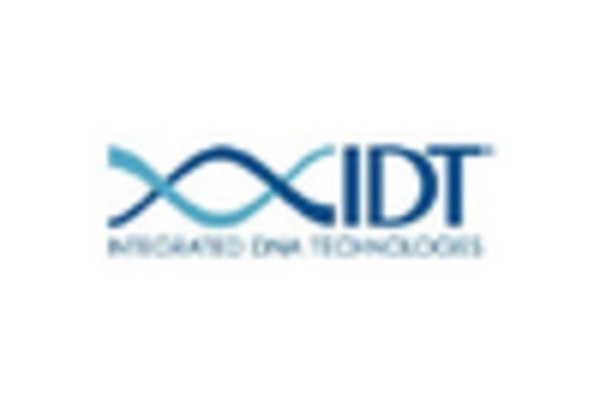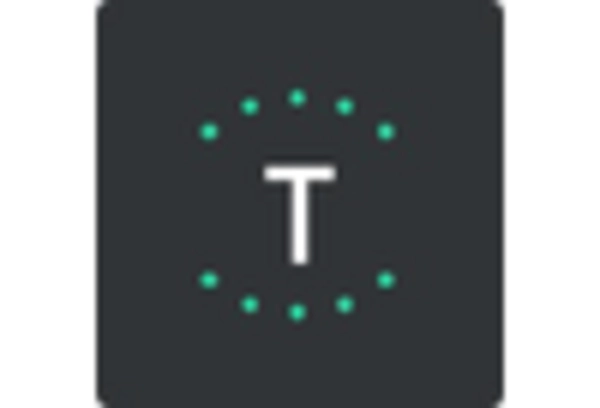Regulatory Framework Enhancements
The regulatory landscape surrounding the market in Germany is evolving, with recent enhancements aimed at fostering innovation while ensuring safety. The German government has implemented streamlined approval processes for biotech products, which is likely to encourage more companies to enter the market. In 2025, it is expected that these regulatory improvements will contribute to a 15% increase in market growth. By reducing bureaucratic hurdles, the government is creating a more favorable environment for research and development in dna synthesis. This proactive approach not only supports existing companies but also attracts new entrants, thereby expanding the overall market.
Growing Applications in Healthcare
The applications of DNA synthesis in healthcare are expanding rapidly, contributing to the growth of the market in Germany. With the increasing focus on personalized medicine, the demand for custom DNA sequences for therapeutic purposes is on the rise. In 2025, it is projected that the healthcare sector will account for over 40% of the total market share. This shift is driven by advancements in gene therapy and diagnostics, which require precise and tailored DNA constructs. Additionally, the integration of dna synthesis in vaccine development and genetic testing is further propelling market growth. As healthcare providers increasingly adopt these technologies, the dna synthesis market is poised for significant expansion.
Rising Demand for Synthetic Biology
The market is witnessing a notable increase in demand for synthetic biology applications in Germany. This trend is largely attributed to the growing interest in bioengineering and the creation of novel organisms for various purposes, including agriculture and environmental sustainability. In 2025, the synthetic biology segment is expected to represent approximately 25% of the overall market. Companies are increasingly utilizing dna synthesis to develop bio-based products, which aligns with Germany's commitment to sustainability and reducing carbon footprints. This shift towards synthetic biology not only enhances the capabilities of the dna synthesis market but also positions it as a key player in addressing global challenges.
Increased Investment in Biotechnology
The dna synthesis market in Germany is experiencing a surge in investment, driven by both public and private sectors. The German government has allocated substantial funding to biotechnology initiatives, with an estimated €1.5 billion earmarked for research and development in 2025. This financial support is likely to enhance the capabilities of local companies in the dna synthesis market, fostering innovation and expanding production capacities. Furthermore, venture capital investments in biotech startups have increased by approximately 30% over the past year, indicating a robust interest in the sector. As a result, the influx of capital is expected to accelerate advancements in synthesis technologies, ultimately benefiting the overall market landscape.
Collaboration Between Academia and Industry
The collaboration between academic institutions and industry players is a driving force in the market in Germany. Universities and research centers are increasingly partnering with biotech companies to advance research and development efforts. This synergy is fostering innovation and accelerating the commercialization of new technologies. In 2025, it is anticipated that collaborative projects will account for nearly 20% of the market's growth. These partnerships often lead to the development of cutting-edge synthesis techniques and applications, enhancing the competitiveness of the dna synthesis market. Furthermore, such collaborations facilitate knowledge transfer and skill development, ensuring a skilled workforce for the future.


